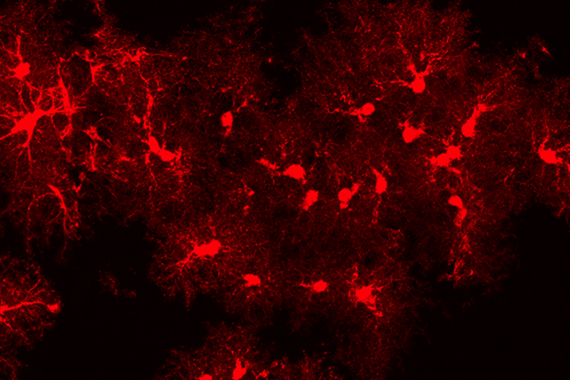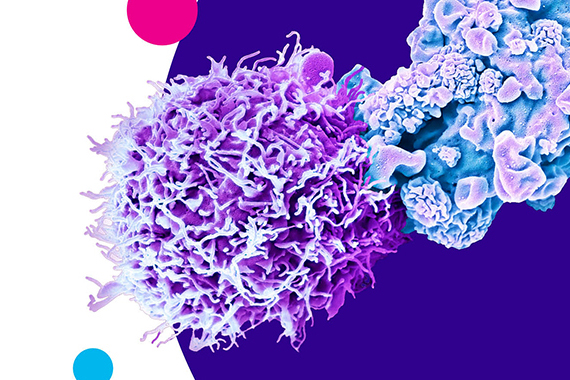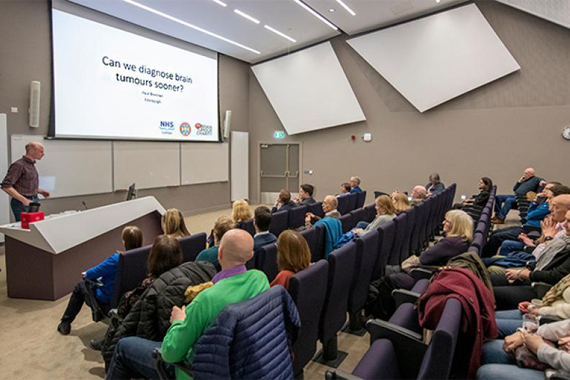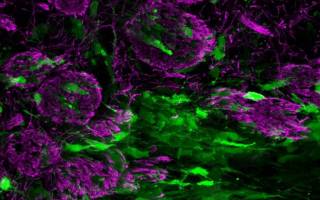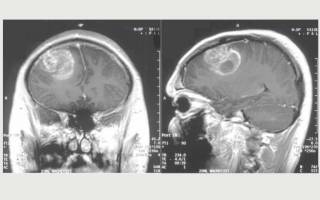Cancer Research UK Brain Tumour Centre of Excellence
There are over 150 brain tumour types. They can be classified based on the type of cell they grow from, their location in the brain and how likely they are to spread. Tumours are graded by the cell activity and aggressiveness on a scale of I to IV. Treatment options vary depending on the cell type, grade, size, and location of the tumour. The most common type of primary brain cancer in adults is glioblastoma originating from glial cells. Glioblastoma spreads quickly and invades other parts of the brain - it is challenging to treat.
Brain cancer survival remains low, and has changed little in over a generation. With more than 11,000 new cases of brain tumours in the UK each year and 10-year survival rate of less than 15% there is a pressing need for development of better treatments.
The CRUK Centre Brain Tumourr Centre of Excellence aims to help deliver a step change in glioma research in the UK by bringing together world-leading experts to advance understanding of the biology underpinning the disease and explore new avenues for diagnosis and personalised treatment.
Research focus and strategic partnerships
News and features
Aggressive brain tumours can mimic normal brain repair processes
UCL Parrinello Lab have made a ‘surprising’ discovery that glioblastoma, an aggressive brain cancer, mimics normal brain repair in white matter, which leads to the tumour becoming less malignant. Researchers used these novel findings to identify drugs which could be used, or repurposed, to harness this response and treat the cancer.
Brain cancer trial recruits largest ever number of patients
A clinical trial for patients with brain cancer, designed by a UCL scientist, has recruited more UK participants than ever before, for a study of its kind. The IPI-GLIO trial represents the UK’s first large scale, charitably funded, immunotherapy trial for NHS patients recently diagnosed with glioblastoma brain cancer.
 Close
Close



